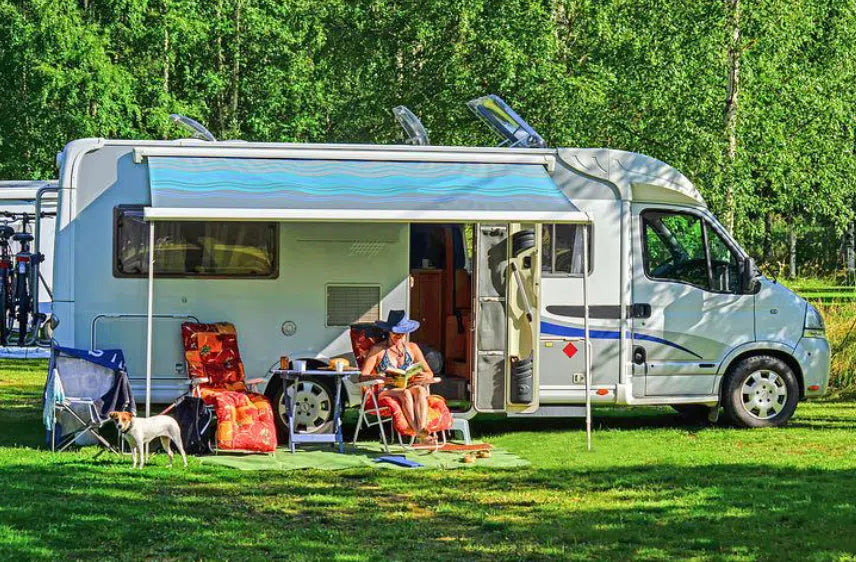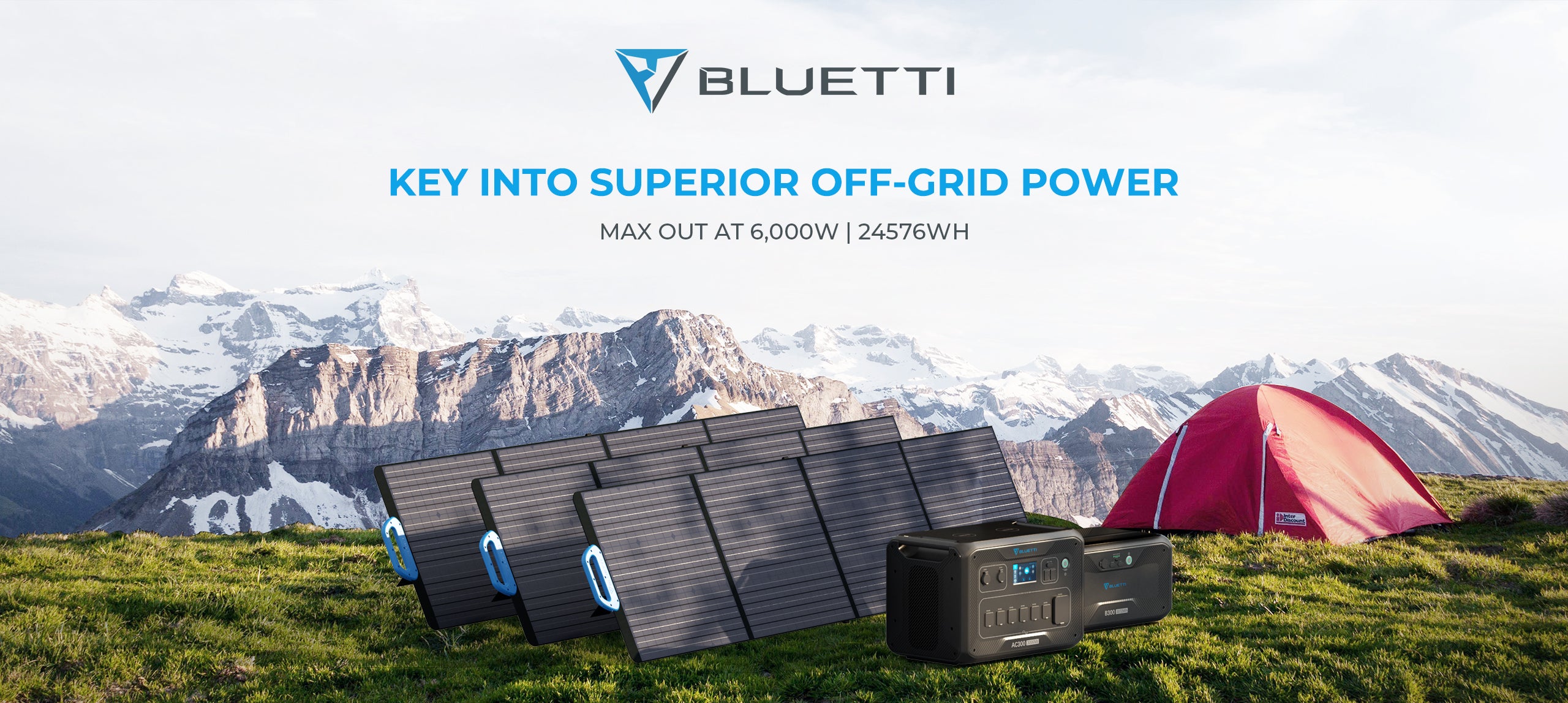If you’re planning on living a ‘home away from home’ life in an RV, chances are you’ll have to travel in areas with no shore power. To keep your everyday electric appliances up and running, you may want to arrange an electricity supply in the form of generators.
However, there are multiple factors you should consider when choosing a generator for your RV. Things like how many appliances you will be using and for how long will determine the kind and size of generators that are best for you. In this article, we will guide you on everything from the types of generators most RV owners use, to the best possible generator you can buy depending on your needs.
What is The Difference Between 30-Amp and 50-Amp RV?
‘Amps’, or amperage, refer to the current flowing through an electrical appliance. Typical RV electrical systems come in 2 amp variations: 30-Amp and 50-Amp. The difference is how much power an RV can draw based on amps and volts. And while there’s only a bump of 20 amps, don’t let the names fool you, because the power facilities supplied by the two are drastically different.
30-Amp RV
A 30-amp RV system is present in trailers and consists of a single 120-volt hot wire, a neutral wire, and a ground wire. With a standard 3-prong plug, a 30-amp RV supplies you a power of 30 amp x 120 volts or a total of 3600 watts. RVs with this system have a roof AC unit, a microwave, a fridge, and other 120-volt outlets for smaller appliances.
50-Amp RV
A 50-amp RV electrical system is present in motorhomes and large campers. It provides two 120-volt hot wires and comes as a four-prong plug. By using the formula of volts times amps, you can easily calculate the power it supplies. That would be 120-volt x 50 amp, or 6000 watts. Since a 50-amp generator has two hot wires, that would make a 6000+6000, or a total of 12000 watts of power. 50-amp RV systems are ideal for catering to the demands of many people and several large appliances.
Types of RV Generators
Now that you know what kind of electrical system your RV provides, you may want to select a generator. RV generators could be built-in within a system, or portable.
The most popular types of RV generators depending on the type of fuel they use to produce electricity are solar-powered generators and gas/diesel generators.
Solar-Powered Generators
While solar power generators need an initial large investment, they are environment-friendly in terms of carbon footprint and also easier to maintain. You also don’t need to recharge or refuel them constantly for electricity supply and run indefinitely. We highly recommend BLUETTI’s solar generator kit for a noise-friendly and eco-friendly powering-up experience.
Gas and Diesel Generators
Generators that need propane or diesel to power up are cheaper and don’t require a large investment. You can also use them in areas without access to solar power. However, gas and diesel generators burn fuels. This way, they leave carbon footprints, and as such contribute to global warming.
Here’s a table to sum up the pros and cons of solar power generators and fuel generators:
|
Solar Power Generators |
Fuel Generators |
|
✔️ Noise Free |
✔️ Use in areas with no solar power access |
|
✔️ High Initial Investment |
✔️ Cheaper |
|
✔️ Environment Friendly |
❌Not Eco-friendly |
|
✔️ Use indefinitely |
❌Requires Constant Fuel Supply |
How Much Power Does Your RV Need?

Before selecting a generator, calculate the amount of power your RV will consume. Ask yourself the following questions: what devices will you be powering and for how long? If you need to throw on an extra blanket or open up the windows for some fresh air, chances are you will want to run a heater or an air conditioner to adjust the temperature.
Similarly, appliances like laptops, refrigerators, irons, and blenders are also essentials you could switch on in your RV.
Each device uses different watts. You can figure out the exact number from the back label of a device. Remember that your ideal generator needs to power all of them. It’s also good to know the run time for all these devices. For instance, a refrigerator runs all day, while you only need to run the clothes iron for a short time. Multiply the amount of watts a device uses with the average number of hours you run the device. Say, a TV that consumes 100 watts and runs for 2 hours/day needs a generator with a little more than 200-watt-hour capacity.
It also pays to consider that most devices will also need an additional large high power for starting, and a lower maintenance power to keep running afterward.
How Much Power Do Common RV Appliances Use?
|
Appliances |
Watts Used |
|
Stove |
900-2500 watts |
|
Washer |
1000-1500 watts |
|
Gaming Console |
70-180 watts |
|
TV |
43-600 watts |
|
Blender |
450-700 watts |
|
Refrigerator |
400-1000 watts |
|
Microwave |
750-1500 watts |
|
Coffee Maker |
900-1200 watts |
|
Hair Dryer |
1200-1875 watts |
How Much Power Does an RV Air Conditioner Use?
An AC unit takes up the largest power supply in an RV. Typically, an AC unit with a standard 15,000 BTU uses 1200-2400 watts of power. If you have more than one AC unit, sum them all up to calculate the total power supply. It is good to know that generators with a 2000-watt capacity cannot run large AC units, and even if they do, you won’t be able to power anything else besides the AC.
How Much Power Does an RV Heater Use?
Space heaters in an RV use an average of 1500 watts of power.
What Size Generator Do I Need to Run My RV?
Now that you know your RV’s electrical system, the number of appliances you will be running, and the watt-hours for each, it’s time to finally pick a generator.
Determine the RV Model
The magic numbers, as we calculated above, were 3600 watts for a 30-amp RV (e.g. fifth wheel trailers) and 12000 watts for a 50-amp RV (e.g. a 45-foot motorhome). Yet bigger is not always better when it comes to picking a generator for your RV. The ideal choice would be a generator that provides constant supply and doesn’t cause damage to itself or the devices. Say, a 2000-watt generator could power up a 50-amp RV just fine, but it will shut down once the demands exceed the supply. However, it would be able to power up most 30-amp RVs without any hassle.
Calculate Total Power Consumption
Use Watts=volts x amps for all the appliances you use. Total power consumption would depend upon the run-time of all your devices and their wattages. On average, the typical RVer uses 6000-8000 watts of power to power all necessary devices.
What Should I Look for When Buying a Portable Generator?

Besides the number of watts you will consume, there are other factors to consider when buying a portable generator:
-
Cost
Generally speaking, bigger generators would be costlier. However, cutting down on your costs to buy something cheaper would mean lower quality and more expenses down the road to compensate for it. Many RVers compensate for smaller generators by buying additional power stations. Check out BLUETTI’s portable power stations for supporting your RV generators.
-
Portability
If you’re RV doesn’t come with a pre-built generator, a portable RV generator will work just fine. Portable solar generators can be used to power up similar appliances like a built-in RV generator, and can even be carried away from the campsite shore power for lights, etc. They are also safer, quieter, and more eco-friendly than built-in generators that use a lot of fuel for power.
-
Capacity
RV generators usually come in a range of 288Wh to 3600Wh capacities but can be as large as 12,000Wh. Generally, a 2,500-2,800 capacity is sufficient for powering up a 30-amp RV system.
-
Noise
To keep your sanity (and peace with your neighbors!), it is advisable to invest in something that is insulated for a sound-proof effect, in contrast to the traditional loud generators that whine. BLUETTI’s solar generators with an inverter are muffled and noise-proof.
-
Durability
Compared to fuel generators, solar RV generators are built for longevity and durability. When combined with a kit like this, it is estimated that an average solar generator can provide power for up to 50,000 hours. We recommend powerful lithium iron phosphate batteries for this purpose because they are made for longer battery life.
Related articles: Winter RV Camping: What You Need to Know Before You Go
2023 Top 5 Best 200-Watt Solar Panels for Your RV
BLUETTI Solar Generators: The Quiet RV Generator
BLUETTI provides one of the quietest, eco-friendly RV generators that are also easy on the pockets. Never lose power on the road!
BLUETTI AC200MAX + 2*B230 + 3*PV200

BLUETTI’s AC200MAX solar generator kit with 6144Wh, and 2200W, which offers up to 5 AC, 5 DC, and 4 USB outlets, so you can power up multiple RV appliances at once. The solar kit also provides a maximum expendable power of ~8000 Wh with a B300 battery. It also offers seven different recharging options, including dual solar and AC adaptor-based recharging. The battery is composed of Lithium Iron Phosphate -- which means it is safer, requires no maintenance, and has a longer battery life.
The powerful battery has 3500+ lifecycles and can be consumed up to 80%. You can easily control the complete solar kit via the BLUETTI app.
BLUETTI AC300 +B300 + 3*PV200 Solar Generator Kit

With 14 outlets including AC, DC, USB ports, and ports for your RV and car, BLUETTI’s AC300+B300 solar generator kit can be used to power up many RV appliances at once. Offering a 240V split phase bonding and even 24/7 UPS home backup to prevent any sudden power shortages, the solar generator kit is fit for both home and RV use.
It has a powerful long-life LiFePO4 battery, that’s self-sufficient and requires minimum care.
You also get a range of recharging options, from AC to battery, and even dual charging for a faster turnaround time. The kit can be scaled for a maximum capacity of 12,288Wh.
BLUETTI AC200P + 3*PV200 Solar Generator Kit

Offering 17 output ports for multiple appliances, including an outlet for RVs, BLUETTI’s AC200P solar kit is cost-effective, reliable for RV use, and eco-friendly.
It provides a 2000Wh power surge and seven recharging options so you never run out of power. When you’re short on solar energy as on a cloudy day, an AC adaptor can be used to power up the kit.
The battery is composed of a long-life LiFePO4 material and is expendable for 3500+ cycles.
Final Thoughts
Take into consideration your RV model, the number and run-time of your appliances, and other factors like your budget, portability, and sustainability when buying an RV generator.
For many RVers, 2000-watt generators that run on solar energy can smoothly power up most electric appliances. However, if you plan on using heavy appliances like multiple AC units in your RV, you might want to consider bigger generators.




